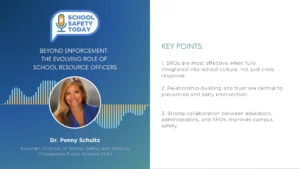U.S. Consumer Debt Hits a Record High. To Maneuver This Debt Avalanche, Consumers Need Accurate Credit Reports.
Caught between a rock and a hard place, American consumers face a growing debt crisis as the New York Fed’s Q4 2022 Household Debt report reveals a staggering $16.9 trillion in consumer debt. Credit card balances have grown 15.2% year-over-year and 6.6% quarter-to-quarter, marking the highest quarterly growth on record. The report highlights that not only are credit card balances swelling at record levels, but delinquencies are also on the rise. With inflation and interest rates climbing, consumers are struggling to meet payment obligations despite a strong labor market, which New York Fed researchers say is quite concerning. If the labor market were to deteriorate, consumer debt and delinquency levels would become even more worrisome.
This alarming trend raises questions about the stability of the U.S. economy and potential implications for businesses, especially as BNPL adoption grows in the retail space.
As businesses adapt to this news, they should consider the impact of growing debt on consumer spending habits and evaluate the role of BNPL solutions in their operations.
Adam Singer, principal at Credit Report Law Group, highlights the importance of good financial hygiene for consumers, especially in light of the current credit climate and consumer debt crisis, and why one of the most important layers for the financial ecosystem to address is providing consumers with accurate credit reporting information.
Adam’s Thougths
“Consumer and household debt is at an all-time high. That’s according to the New York Fed, and that increased activity means a few things for consumers. And keep in mind that each consumer in this country has multiple credit files maintained about them by not only the national credit bureaus, Equifax, Experian, TransUnion, but also dozens of consumer reporting agencies that specialize in niche areas of the economy; insurance, banking employment, background checks and so much more. And so that increased credit activity means a few things for consumers.
One, it means more opportunities for latent mixed files to become a problem for consumers. Unfortunately, there are millions of consumers in this country that are believed to have what are called mixed files, and their credit file is mixed up with another consumer. And what that often means is that other consumers’ accounts end up on the credit files of an innocent consumer.
Now, if that other consumer’s paying his or her bills, then everything’s fine. But if that other consumer becomes delinquent on his or her credit accounts, all of a sudden, the negative effects of that are manifested on the innocent consumer’s credit reports and the innocent consumer’s credit scores. And so all of these latent mixed files that are out there with all this increased credit activity, that could become a real problem as the consumer becomes more stressed and accounts go delinquent.
At the same time, there’s a separate issue, which is that with increased credit activity, there’s likely going to be more identity theft involving credit. And that can lead to a similar problem where accounts that don’t belong to a consumer end up on an innocent consumer’s credit reports. What I think all of this means most importantly is that it is good financial hygiene for a consumer to stay on top of what is being reported about him or her by not only the National Consumer Reporting [Association], Equifax, Experian, TransUnion, there’s a fourth called Innovis, but also the specialty consumer reporting agencies.
And one way that consumers at least can get their national credit reports from the big three is to use the website annualcreditreport.com. In fact, consumers can also mail away for those reports. That statute, annualcreditreport.com, is authorized by the federal statute, the Fair Credit Reporting Act, and despite its name, the credit bureaus are now giving reports and have been since the pandemic on a weekly basis for free. So that’s an excellent resource for individuals.
In terms of businesses, they may want to consider encouraging not only their employees but also their customers to be aware of this and to check their credit reports for free. It doesn’t benefit the business and certainly doesn’t benefit the consumer if consumers are about to make a bonafide credit application only to find out that their credit score is not what they thought it was due to some inaccuracies. Those inaccuracies are just a drag on the system, a drag on business efficiency.
And so this is an important idea for individuals, whether they’re employees or just consumers, to keep in mind, is that they want to be able to make sure that only accurate information is being reported about them. That right to accuracy is a hallmark of the federal Fair Credit Reporting Act, and here in New York, also the New York State Fair Credit Reporting Act. It’s important for consumers also to know that if they do find a mistake, they may be eligible to have an attorney help them at no charge, at no out-of-pocket cost to them. That’s what we do here every day at the Credit Report Law Group is represent consumers, typically at no out-of-pocket cost to them, and seek to get those mistakes corrected. And also in many cases, to get the consumers compensation.”







